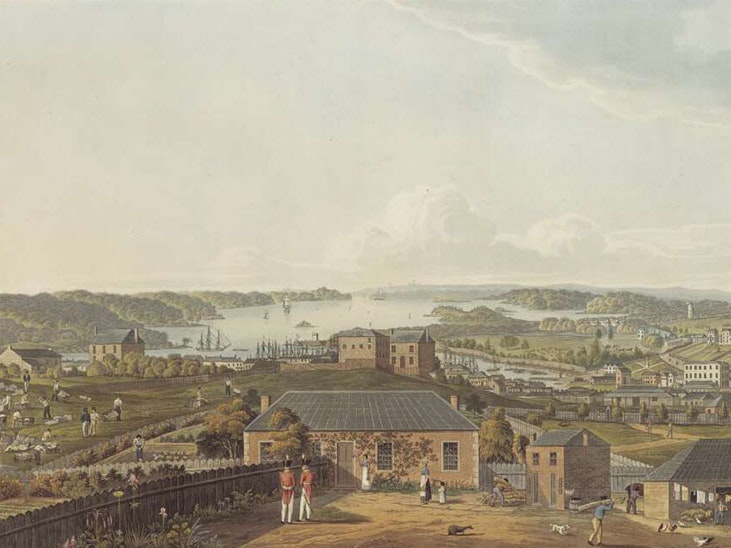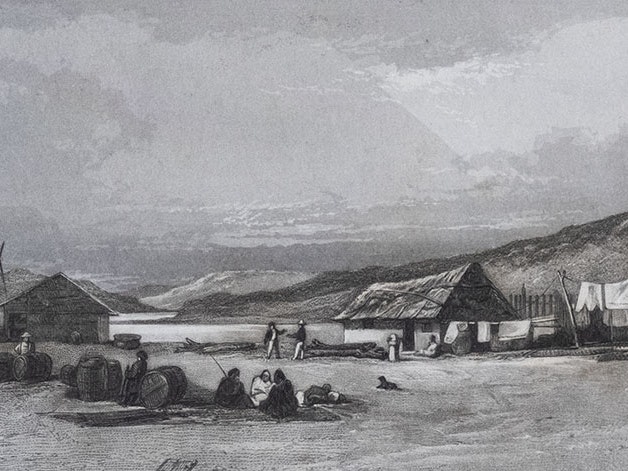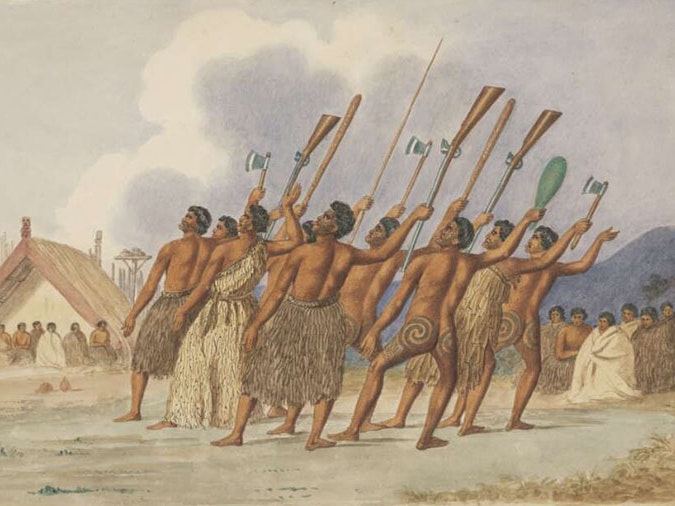
Māori and Pākehā early contact: Business and missionaries
The first visitors from Britain had no plans to settle in New Zealand. They were here on business: to explore, or to exploit this country’s natural resources.
Free museum entry for New Zealanders and people living in New Zealand
Open every day 10am-6pm
(except Christmas Day)
Free museum entry for New Zealanders and people living in New Zealand
Polynesian people stepped onto these shores some 800–1,000 years ago. Over the following centuries, this country was a place of independent tribal groups who looked after their own territories and lived close to the land, physically and spiritually.
Eventually every part of the country was overseen by a particular iwi or hapū, each led by their own rangatira.
Ngā taonga nō te whenua, me hoki anō ki te whenua.
What is gifted from the land should be returned to the land.
Over 235 years ago, new people began to arrive voyagers from Britain and Europe. They became known generally as Pākehā.
The people of the land, the tangata whenua, became known as Māori.
Māori were interested in the goods and skills Pākehā had to offer. From about 1805, a few Māori began incorporating European skills and materials into their lives.
However, for many decades, Māori ways of life, values, and customs were almost unchanged by contact with Europe and Britain. Visitors from across the ocean entered the Māori world at their own risk.
Māori lived communally, with members of the village working together on day-to-day tasks. If visitors from another friendly iwi or hapū were expected, every effort was made to extend manaakitanga. The hākari platform in this painting would later be piled high with food for an important gathering.
Captain Richard Oliver, Feast at the Bay of Islands, September 1849, about 1849, New Zealand, by . Purchased 1995 with New Zealand Lottery Grants Board funds. Te Papa (1995-0003-1)
Sydney Parkinson, A curiously arched rock; A New Zealand chief; A subaltern warrior. [detail] etching and engraving. Gift of Mr Wright, 1972. Te Papa (1992-0035-2088)
This warrior wears a dog-skin cloak and wields a tewhatewha, a long axe-shaped weapon. He has a mere, a short bladed weapon, in his belt.
Music – in movement and singing – was and continues to be a dynamic part of Māori life. Customarily, men and women perform different forms.
Edward Markham, A dance called Karne Karne or Cune Cunee, 1834, pencil and watercolour. Alexander Turnbull Library, Wellington, New Zealand (MS-1550-006)
Māori named this country in detail. This didn’t stop Captain James Cook creating new place names on his three visits here between 1769 and 1777.
***
This content was originally written for the Treaty2U website in partnership with National Library of New Zealand Te Puna Mātauranga o Aotearoa and Archives New Zealand Te Rua Mahara o Te Kāwanatanga in 2008, and reviewed in 2020.

The first visitors from Britain had no plans to settle in New Zealand. They were here on business: to explore, or to exploit this country’s natural resources.

British and other visitors to New Zealand were quick to realise the business opportunities this land offered. Likewise, Māori saw that the visitors offered new trading possibilities.

One item the Pākehā visitors brought caused more upheaval than any other – the musket. At the start of the 19th century, these guns were the norm on European battlefields.